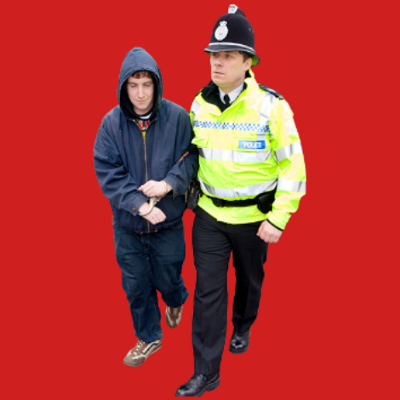What happens if you are arrested

If you are arrested, it means the police think you may have been involved in a crime. If you are detained, it is because the police need to find out some more information about how you were involved.
It is important that you try to keep calm and not panic. If a police officer tries to arrest you, you must never resist arrest.

If you are arrested you have the right:

- To ask for a solicitor. This is someone who will help you understand the crime the police think you were involved with and your rights.

- To tell someone you trust that you have been arrested
- To be treated fairly

- To ask why you have been arrested
- To not answer questions

- To ask for an interpreter, who will explain things in your own language. This could be a sign language interpreter

If you are under the age of 17 or have a learning disability, you also have the right to have an 'appropriate adult' with you whilst you are being asked questions. An 'appropriate adult' could be your parents or a support worker you know.
If you are arrested or detained, this is what will happen:

- A police officer will ask you your name and your date of birth
- The police officer will caution you, which means the police officer will tell you that:
- You do not have to say anything
- If you say anything the police officer will write it down
- What you have said may be used as evidence
- The police officer will ask you if you understood the caution

- A police officer will take you to a local police station
- You will be told why you have been arrested or detained
- You will be searched and the things you have with you (personal belongings) will be taken away. You will get these back later

- If you are under 17 years of age or the police do not think you understand their questions, an 'appropriate adult' may be requested

- A police officer will tell your solicitor you have been arrested or detained
- The police may want to:
- Take your fingerprints
- Take your photograph

- Take a DNA sample (the inside of your mouth will be gently brushed with a cotton bud)

- Ask a doctor to see you
- You may need to stay at the police station whilst the police get more information. You could be kept in a room called a police cell
- If the police believe you have done something wrong and committed a crime, they may charge you with committing the crime
- If you are charged with a crime:
- The police may keep you in the police cell and you will go to court the next day
- You may be given back your personal belongings and allowed to go home. You will be given a letter telling you when you need to go to court. This letter may be sent to you
- If you are not charged with a crime, your personal belongings will be given back to you and you will be allowed to go home
